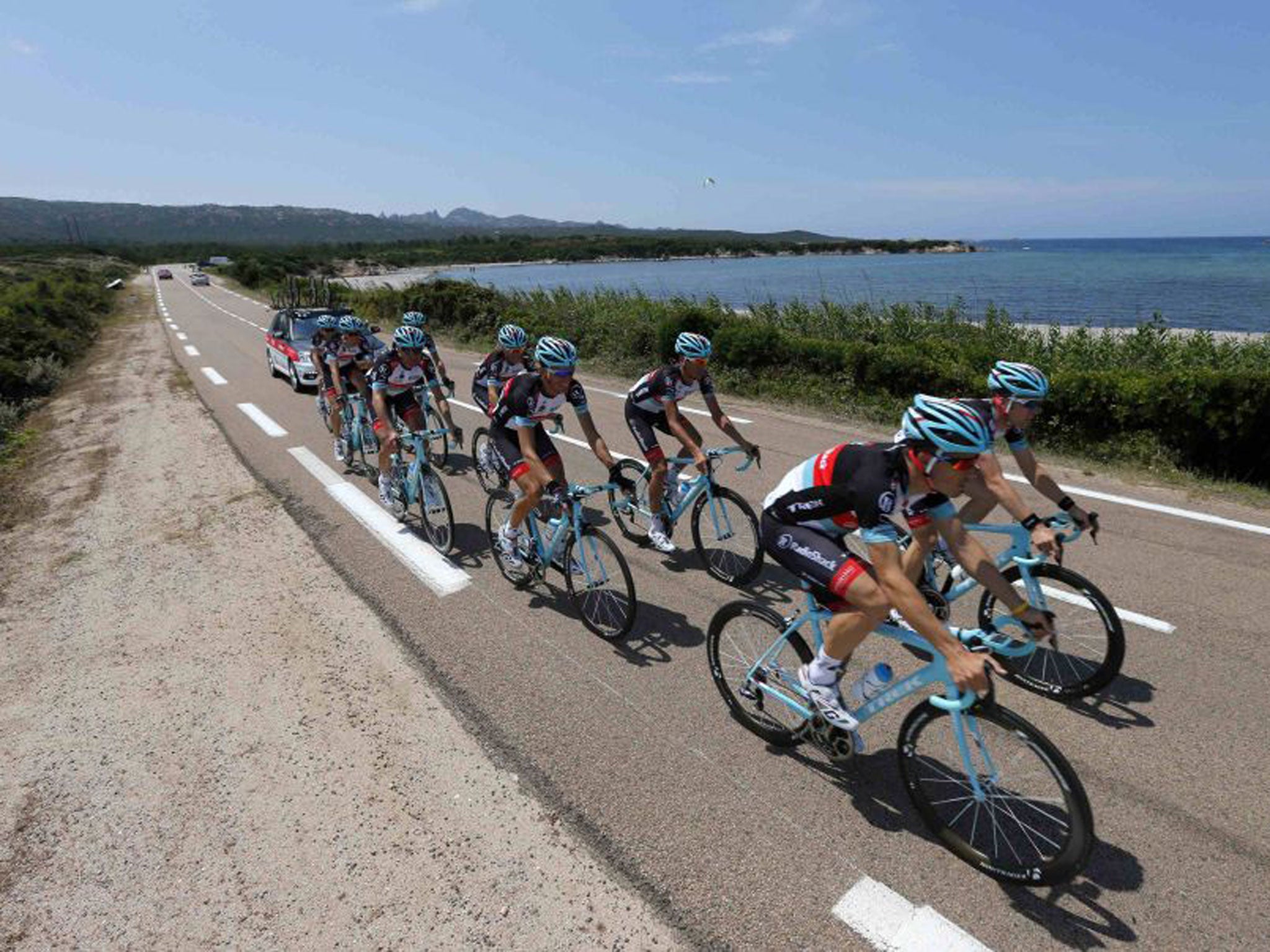Finally the Tour de France rolls in to Corsica – but is it really safe?
For the first time in its history, cycling’s biggest race will visit the restive island

Your support helps us to tell the story
From reproductive rights to climate change to Big Tech, The Independent is on the ground when the story is developing. Whether it's investigating the financials of Elon Musk's pro-Trump PAC or producing our latest documentary, 'The A Word', which shines a light on the American women fighting for reproductive rights, we know how important it is to parse out the facts from the messaging.
At such a critical moment in US history, we need reporters on the ground. Your donation allows us to keep sending journalists to speak to both sides of the story.
The Independent is trusted by Americans across the entire political spectrum. And unlike many other quality news outlets, we choose not to lock Americans out of our reporting and analysis with paywalls. We believe quality journalism should be available to everyone, paid for by those who can afford it.
Your support makes all the difference.Fans of road-race cycling – and admirers of spectacular scenery – are in for a treat over the next three days as the 100th Tour de France starts this morning in Corsica, the only part of Metropolitan France never to have been visited by the world’s greatest cycle race.
The French government, the race organisers and the immense majority of the 300,000 Corsicans hope the “Isle of Beauty” will manage to conceal from the Tour’s worldwide television audience its darker reputation as Europe’s murder black spot.
Officially, and even unofficially, there is nothing to worry about, save perhaps cows and sheep wandering into the path of the riders on the notoriously undisciplined roads. There is almost certain to be a token and harmless plastiquage – or plastic explosive – attack on a symbol of the French state by one of Corsica’s jumble of independence movements. “We know they are plotting some kind of stupidity,” said one gendarmerie source.
But French officials and spokesmen for the independence groups insist that the cycling teams and visiting cycling fans –like most visitors to Corsica – are in no danger. Although the island has more murders per head of population than Sicily or Sardinia, or any other part of the EU, the vast majority of the killings are the result of feuds between clans and criminal gangs.
In recent months, there has been a series of assassinations of members of the Corsican legal and business elite. This is attributed to the rise of a new generation of younger, organised criminals who are less connected to the independence movements and determined to make money by developing the prime tourist sites of a largely unspoilt island.
“Pressure is put on mayors to grant planning permission,” the Corsican Assembly President Dominique Bucchini said earlier this year.
“If they prevaricate, they find that their cars have been torched, or a bomb is set off near the mayor’s office. And then finally it comes to a bullet in the head.”
Since tourism is the island’s life-blood, both legal and illegal, the authorities are optimistic that there will be no serious attempt to disrupt or tarnish Corsica’s first Tour. The island has invested €10m to improve roads and other infrastructure: it hopes eventually to reap €100m in extra spending by tourists who see the island for the first time on television.
The Olympic athlete Gilles Quénéhervé is the special representative of the French state in Corsica for the Tour de France. The fact that such a job exists says much about the odd relationship between Corsica and the rest of France, known locally as “le continent”. Corsica is culturally and linguistically more Italian than French. The island was ruled by Genoa for almost 500 years before it became, briefly, an independent Republic with British help in 1755. It was conquered by France in 1769 and is now part of Metropolitan France (distinct from the overseas départements).
Since the 1970s, there has been a powerful, but much fractured, independence movement, which constantly harasses the French state and occasionally stoops to more serious acts of terrorism. Corsica has France’s oldest population, its biggest disparity between rich and poor and its worst education record. The Tour de France has spilled over into Britain, Ireland, Belgium, Spain and Italy but has never crossed the Ligurian sea to Corsica.
The official explanation is that the roads have always been too narrow and ill-maintained and that island has been too poor, or too divided, to put up the “bounty” or “fees” which the Tour demands from the towns which host its daily stage starts and finishes. Fear of separatist or criminal violence has not been an issue: not before and not now, the Tour organisers insist.
There have been 110 murders in Corsica since 2008 – equivalent per head of population to 22,000 murders in France or Britain. More than half have been attributed to criminal quarrels or “hits”.
Many others are linked to clan disputes or tit-for-tat killings. Such is the powerful omerta, or culture of silence, which rules the island that hardly any arrests have been made.
In terms of “low-level” crime, such as muggings or assault, the island’s record is very good. Corsica is one of the safest places in Europe – so long as you don’t meet a stray herd of sheep as you cycle at 80kph down a steep, winding road.
Join our commenting forum
Join thought-provoking conversations, follow other Independent readers and see their replies
Comments